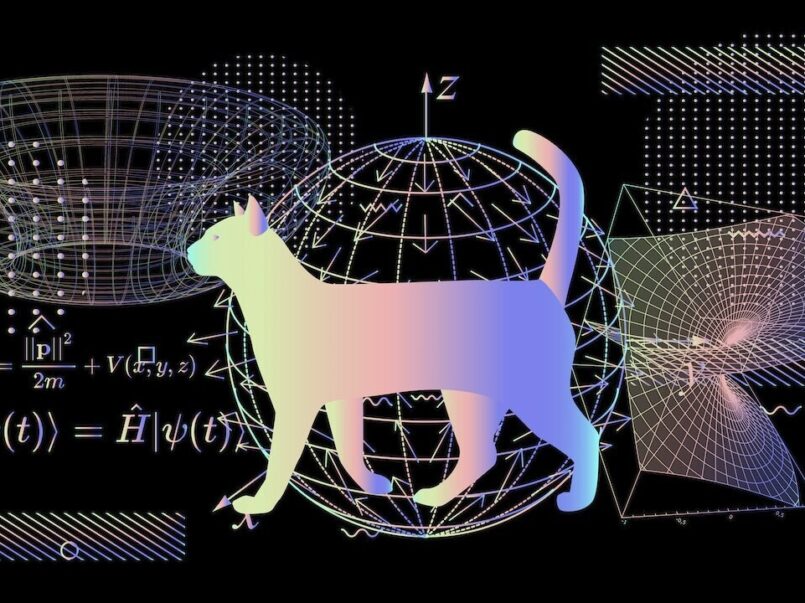We may be familiar with the famous Schrödinger’s Cat thought experiment, which describes a scenario where a cat is placed in a sealed box with a radioactive substance and a vial of poison that can kill it. Until the box is opened and the cat is observed, its state remains uncertain—it is both alive and dead simultaneously, existing in a superposition of states. One cannot ascertain the cat’s state inside the box until the observer has, in fact, opened the box and inferred the current scenario of the cat. In quantum mechanics, the cat’s ability to be in this ambiguous state of being alive or dead until it is observed is referred to as quantum indeterminacy or the more famous observer’s paradox.
The proposition’s validity, or, here, the paradox, suggests that the presence of an observer influences the outcome of an event or experiment.In this scenario, observation determines whether the cat remains in an uncertain state or if its condition dead or alive is entirely revealed by opening the box. The experiment raises important questions about when and how possibilities are resolved. It invites us to consider whether it makes sense for observation to determine the outcome. After all, would the cat not be intrinsically dead or alive, regardless of whether the box is ever opened?
This paradox challenges our understanding of reality and the role of observation in defining it. This concept aligns with the Copenhagen interpretation of quantum mechanics, which proposes that a quantum system exists in a superposition of all possible states until it is observed. Observation itself determines the system’s actual state, thereby resolving the uncertainty inherent in superposition.
However, what if we try to rework or reimagine this experiment in the context of social sciences research? What if we imagine the observer here as the “theory-gruntled” academician who is confused about the possibilities of their research and the cat to be the aim of the research they are trying to reach? Indeed, the researcher here can easily assume that the cat can be either dead or alive without even opening the box, a process which I can consider the common mistake that students like me and researchers alike make the mistake of conceiving our observations as universally valid and straightforward.
How about reframing the observer’s role in determining the outcome of the original experiment to parallel the process by which a researcher, through active engagement in fieldwork and ethnographic qualitative research, “opens the box”? Here, the observer’s ability to determine the cat’s state is transformed into the idea that their interpretations and understanding constitute the knowledge derived from their fieldwork. This process works in tandem with theoretical knowledge, regarded as apriori, knowledge shaped by personal experience. When these two elements align and interact, the researcher can effectively interpret the state of Schrödinger’s cat or, in this context, achieve the objective of their research.
While there may be no universal truth or one-size-fits-all explanation in research, in this case, the researcher can at least rest easy knowing—if only for their sanity—that the cat is either dead or alive. In the context of social sciences research, the act of “opening the box” transcends mere observation; it is a deeply collaborative process where knowledge is co-produced by the researcher and the observed participants.
Constructivist grounded theory, in particular,highlights this dynamic interplay, emphasizing that the researcher does not passively uncover a preexisting truth but actively constructs meaning through engagement with participants and the context of the study. Just as the state of Schrödinger’s cat is influenced by the observer’s actions, the insights generated in social research are inherently shaped by the researcher’s interpretations, existing theoretical frameworks, and the lived experiences of the participants. This iterative interaction blurs the lines between observer and observed, making the research process an ongoing negotiation of meaning rather than a simple search for objective truth.

